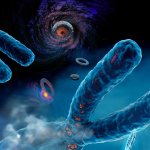
News • New drivers and biomarkers
Cancer: Mapping mutation 'hotspots' reveals key players
Researchers have identified a previously unrecognized key player in cancer evolution: clusters of mutations occurring at certain regions of the genome.

Researchers have identified a previously unrecognized key player in cancer evolution: clusters of mutations occurring at certain regions of the genome.

Despite a five-year transition period for In-vitro Diagnostic Medical Device Regulation (IVDR), experts fear many actors in the field are still not prepared for the regulations coming into force.
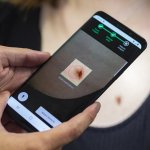
A mobile application assists in recording skin lesions and sends them to dermatology departments in hospitals, speeding up diagnosis of skin cancer.
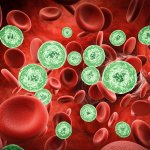
Researchers used artificial intelligence to identify sets of genes that predict whether a patient will acquire severe sepsis.

Does artificial intelligence (AI) need more diversity? This aspect is brought up by experts in the context of AI systems to diagnose skin cancer. Their concern: images used to train such programs do not include data on a wide range of skin colours, leading to inferior results when diagnosing non-white patients.

Every day, elderly people fall – be it at home or in care facilities. Med-tech start-up Lindera developed an app that allows motion analysis via a smartphone camera to minimize the risk of falling.
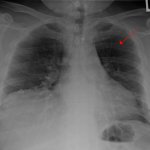
A new study has found that AI can help physicians in interpreting x-rays after an injury and suspected fracture. This has the potential to improve diagnostic performance and efficiency.

A new pilot study suggests that machine learning algorithms which fuse electrocardiogram (ECG) and electronic health record data may help doctors screen for dangerous, lung-clogging blot clots.
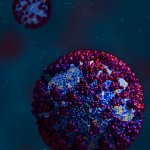
Researchers in the UK and China have developed an AI model that can diagnose Covid-19 as well as a panel of professional radiologists, while preserving the privacy of patient data.
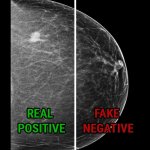
Artificial intelligence (AI) models that evaluate medical images have potential to speed up and improve accuracy of cancer diagnoses, but they may also be vulnerable to cyberattacks.
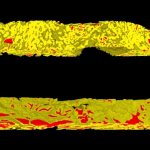
A team led by the University of Washington has developed a new, non-destructive method that images entire 3D biopsies instead of a slice. The 3D images provided more information than a 2D image — specifically, details about the tree-like structure of the glands throughout the tissue.
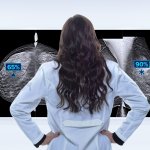
Artificial intelligence (AI) is changing our healthcare systems. It can help us detect diseases earlier, improve patient care and reduce healthcare costs. However, there is still a lack of trust, of rules and safety regulations and of broad data pools. How can we use AI successfully in healthcare systems and what role will it play in the future?

AI-designed Xenobots reveal an entirely new form of biological self-replication—promising for regenerative medicine.

A stethoscope is one of a doctor's most important instruments, but there haven't been any fundamental improvements in the device itself since the 1960s. Now, researchers at Aalto University have developed a device that analyses a broad range of bodily functions and offers the doctor a probable diagnosis, as well as suggestions for appropriate further examinations. The researchers believe that the…

Professor Regina Beets-Tan, President of the European Society of Radiology (ESR), looks on possible future developments in cancer imaging. AI is very promising in this regard, 'However, it has proven to be a problem that the data with which the artificial intelligence is fed must be very homogeneous,' the expert observes.

Artificial intelligence-based technique reveals previously unknown cell components that may provide new clues to human development and disease.
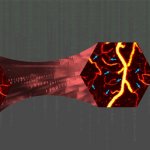
Researchers at the McKelvey School of Engineering at Washington University in St. Louis found a way to significantly reduce the noise and maintain image quality while reducing the laser energy needed to generate images by 80%.

Digital technology solutions create new opportunities in diagnosis and assessment of renal conditions. With whole slide imaging (WSI), improved workflow and better visualization, such technology already yields a ROI for hospitals and laboratories.
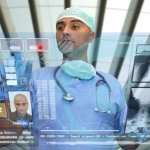
How will digital technology impact healthcare in 2030? If challenges to acceptance and utilisation can be overcome, healthcare providers and patients will benefit significantly, according to physicians participating in a recent online seminar on this topic.

"Virtual Care & Digital Therapeutics", "Medical Artificial Intelligence & Robotics", "Fields of Innovation" and "Societal aspects of digitized healthcare" are the topics of this year's Health IT Forum at Medica. New this year: In line with the hybrid event concept of the trade fair, the Expert Panels, Tech Talks and Deep Dive Sessions can be…
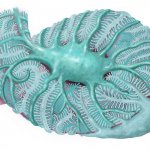
Researchers have leveraged the power of digital pathology and computational modeling to detect and quantify podocytes, a specialized type of cell in the kidney that undergoes damaging changes during early-stage kidney disease.

French researchers have found that addressing concerns related to the Covid-19 vaccination via a chatbot interface might be capable of swaying the vaccine-hesitant. Vaccine hesitancy is one of the major challenges in containing the Covid-19 pandemic. Previous studies have revealed that mass communication—through short messages relayed by television or radio—is not a very effective means of…
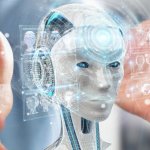
Robotics4EU is the European Commission’s answer to the unprecedented importance of robotics in modern economy. Launched officially in January 2021 under the Horizon 2020 Research and Innovation programme, Robotics4EU aims to take concrete steps to ensure a more widespread adoption of (AI-based) robots in the EU, particularly in the areas of Healthcare, Inspection and Maintenance of…

Researchers at the national research institute for mathematics and computer science in the Netherlands (CWI), together with a colleague from Stichting Interuniversitair Micro-Elektronica Centrum (IMEC) in Eindhoven, have achieved a mathematical breakthrough in the computation of so-called spiking neural networks. Thanks to this breakthrough, special chips that are suitable for this artificial…
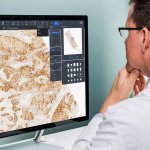
Roche announced that it has entered an agreement with PathAI, a global leader in artificial intelligence (AI)-powered technology for pathology. Under the development and distribution agreement, the companies will jointly develop an embedded image analysis workflow for pathologists. This workflow will allow PathAI image analysis algorithms to be accessed within Navify Digital Pathology, the cloud…